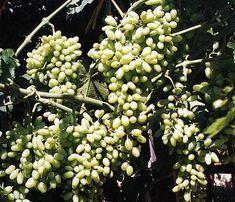
The industry is deciding what direction to take with Greek grapes that have been treated with Bromopropylate, which now has a lower MRL set in the UK.
"EU directive 2002/79 of October last year stated that the Maximum Residue Level (MRL) of Bromopropylate on grapes would be set at the limit of determination (LOD) 0.05 from August 1 2003. This new substantive harmonised EU MRL replaces the old Codex MRL of 2.0," said an FPC statement.
"The UK incorporated this directive into national legislation in Statutory Instrument 661 of 2003. Accordingly, on August 1 it became illegal to circulate grapes with an MRL above 0.05 in the UK."
The FPC understands that Bromopropylate has continued to be used on a very significant proportion of the Greek grape crop. In view of the persistent nature of this active ingredient we would expect in these circumstances to find residues above the LOD but, if used in accordance with label recommendations, below the old Codex MRL of 2.0.
Although the use on grapes and the resultant MRL of below 2.0 was legal at the time of application, it has essentially been illegal in the UK since August 1.
Aware of this problem retailers and importers are considering how best to tackle it. One course of action being considered is to establish a system of positive release in Greece that would avoid importing any Greek grapes into the UK with higher than the acceptable MRL.
“This issue, but not the specific case of Bromopropylate, was discussed at the last FPC Pesticide Committee,” said FPC chief executive Doug Henderson. “As a result, there are on-going discussions taking place with the Pesticides Safety Directorate on this subject.
“Importers should be aware that retailers may decide not to merchandise grapes that have or have the risk of having residues of Bromopropylate that are above the LOD.
“We will keep you closely informed of developments.”






No comments yet